
An RAF veteran who was medically discharged after a freak thumb injury left her arm immobile has rediscovered her love for sport and recently became the Invictus Games’ first female UK captain.
Rachel Williamson, 35, who lives in Loughborough, Leicestershire, had always dreamt of representing Great Britain in swimming, and in 2005, she narrowly missed out on a spot at the Commonwealth Games.
Rachel, who is single and child-free, joined the RAF two years later, serving as a physical training instructor and medic, excelling in swimming and rugby at an inter-service level.
However, a routine rugby session in 2014 resulted in a thumb sprain that developed into functional neurological disorder, ultimately leaving her with minimal movement in her arm and leading to her medical discharge from the RAF in 2018.
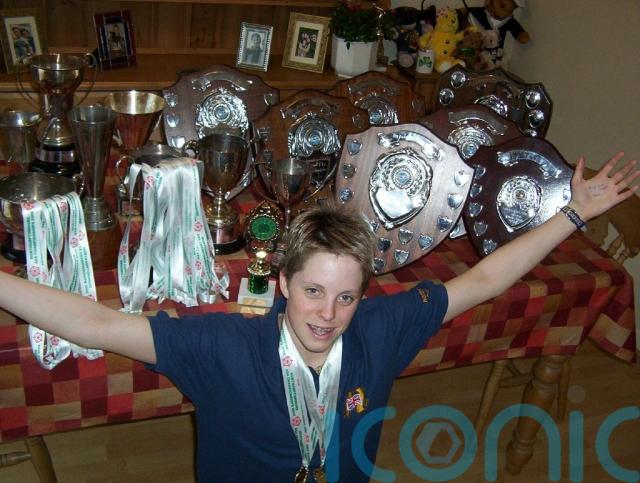
Feeling “angry”, Rachel gave up on sport until a friend signed her up for the 2018 Invictus Games – an international multi-sport event for wounded, injured and sick servicemen and women, both serving and veterans.
She won multiple medals in swimming and rowing and made history as the first female captain of Team UK at the 2022 Games. Through this, she met the Duke of Sussex, the Games’ founder, and recalled him being “so relaxed” as he was “there as a veteran”.
Today, Rachel inspires others as an adaptive sports ambassador, record-breaking rower, and Help for Heroes advocate, while working at the rehabilitation centre where she received treatment.
Rachel told PA Real Life: “Life doesn’t end when you are injured, it’s just a reset.
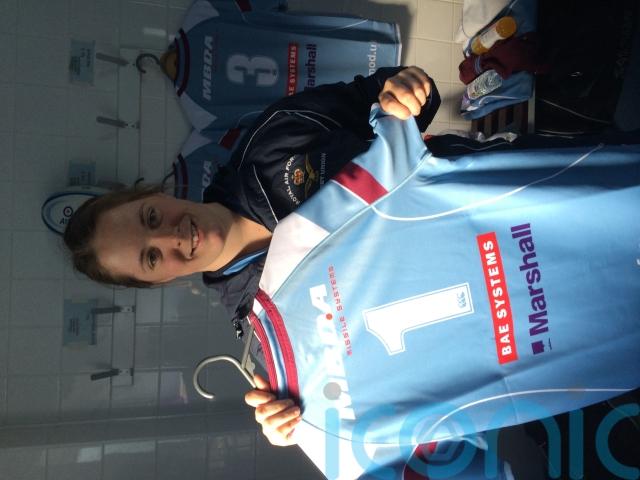
“I got very angry… I think I was just taking it out on everything and everyone.
“I’ve asked a million times for my arm to be amputated – it’s so annoying to have something you can’t use attached to you.
“You end up walking into doorframes because you think your body stops there.
“If someone touches my hand, I hate it.
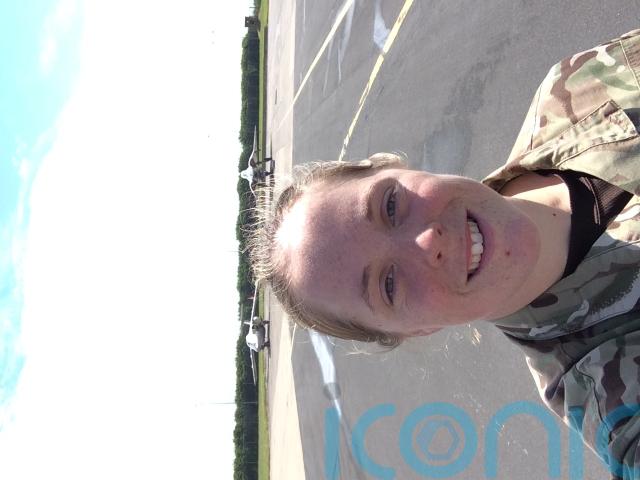
“I just don’t recognise the sensation any more – I know I’m being touched, but I don’t know where, and it’s very frustrating.”
Rachel had always hoped to represent her country in swimming, and in 2005, she reached the Commonwealth trials finals but missed out on a place at the Commonwealth Games.
She decided to join the RAF two years later, starting as a physical training instructor before retraining as a medic.
During her time as a medic, she served at RAF bases including Waddington and Wittering and completed a four-month tour in the Falklands.
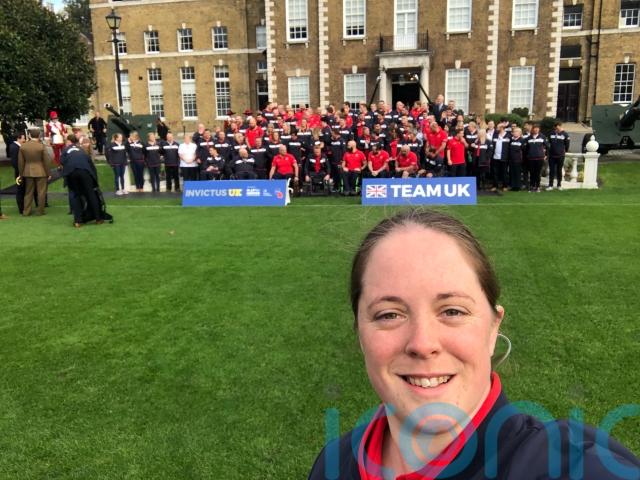
She also represented the RAF in swimming and rugby at an inter-service level, regaining her confidence to compete in sport.
However, in October 2014, during a routine rugby training session with the RAF Rugby Union Women’s Team, Rachel sustained what initially appeared to be a sprained thumb, after it got “caught on either the ball or a person”.
She said: “I had it taped up and played the game… but shortly after, I realised I was losing thumb strength, and my grip was going in my hand.
“I started getting this sort of tremor that went with it.
“I thought, ‘Well, this is odd’, and then slowly, over the years, it deteriorated up my arm.”
As her condition worsened, Rachel struggled with tasks critical to her role as a medic, including basic life support and lifting patients.
“That’s when I realised it was serious,” she recalled.
“I think I was hiding how bad it was.”
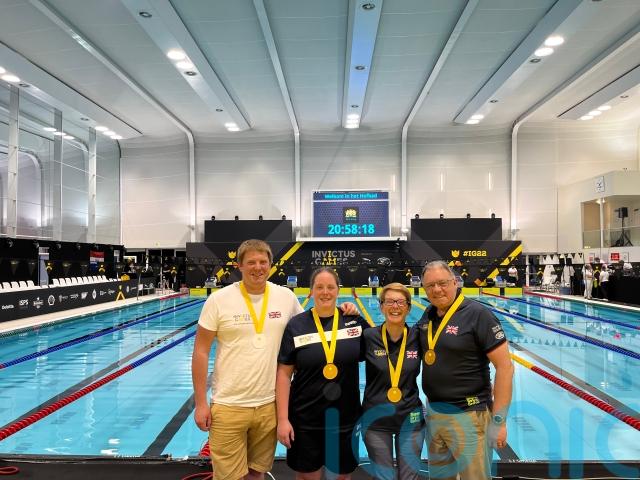
In 2016, she began physiotherapy at the Defence Medical Rehabilitation Centre, Headley Court, staying for three weeks at a time.
Throughout this period, she stopped working and was informed she would be medically discharged, though the process was delayed due to the number of appointments she had to attend.
In November 2017, Rachel was diagnosed with functional neurological disorder and by 2018, she had lost almost all movement in her arm.
Rachel gave up on sport as she “didn’t want to be a failure again”.
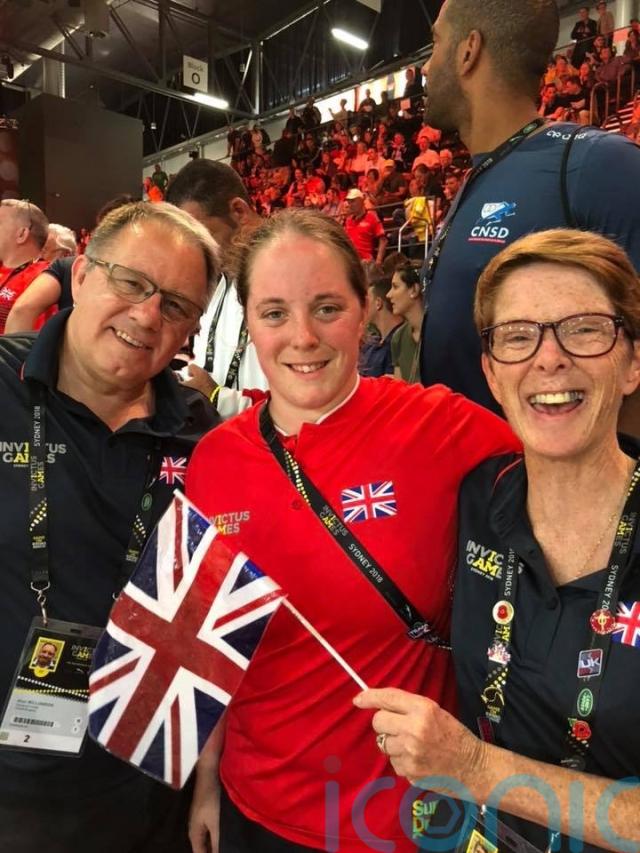
After being medically discharged in 2018, a friend nominated Rachel to represent Team UK at the Invictus Games in Sydney.
“I realised you can adapt, you just have to be willing to put yourself out there,” she said.
“When I was selected, I thought it was a joke – I had to accept that adaptive sport was happening and would be part of me again.”
At the Games, she brought home two gold medals in rowing and three silvers and a bronze in swimming.
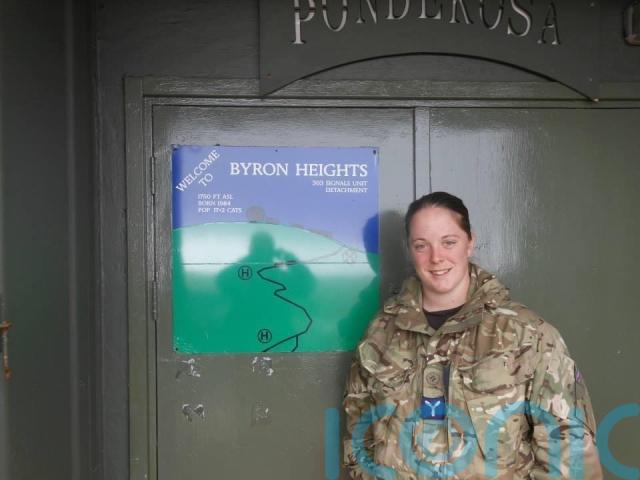
It was the first time she had swum in front of her family since the Commonwealth trials, and she fulfilled her lifelong goal of representing the UK on the world stage.
She recalled: “I looked up, and they were cheering and crying. I thought, ‘This is crazy, but I’ve done it’.
“I didn’t care about my time, and then they told me I’d got a medal – and then some more.
“I realised I could do it, and the biggest lesson was not to compare myself to where I was before.”
In 2020, Rachel became the first female captain of Team UK for the Invictus Games, a role she found particularly rewarding.
She explained: “I didn’t think I was captain material, but being the first woman to do it made it extra special.
“Encouraging women to get into sport means a lot to me.”
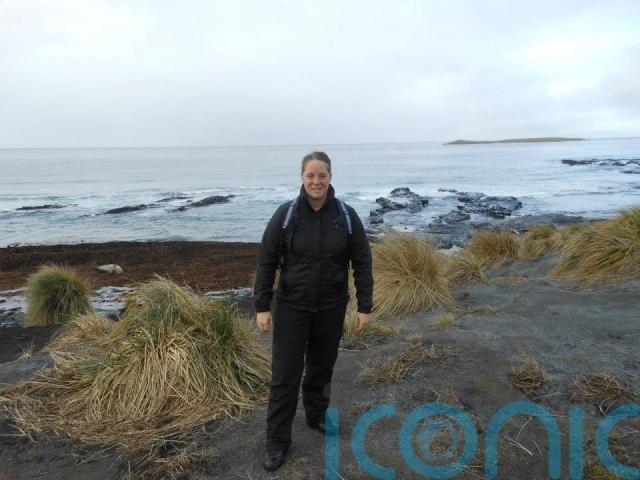
While she was a captain, she worked with and met the Duke of Sussex.
She said of Harry: “He was so relaxed with himself because he was there as a veteran and we can all just relate so easily, once you’re in that military bubble.
“We had a good laugh, he’d have a joke, and he presented me a couple of my medals as well, which was really nice.
“I thought that was great and it was great to meet him, and Meghan as well.”
Though the pandemic delayed the Games, Rachel led her team to a successful competition in 2022 in The Hague, Netherlands, earning five more medals.
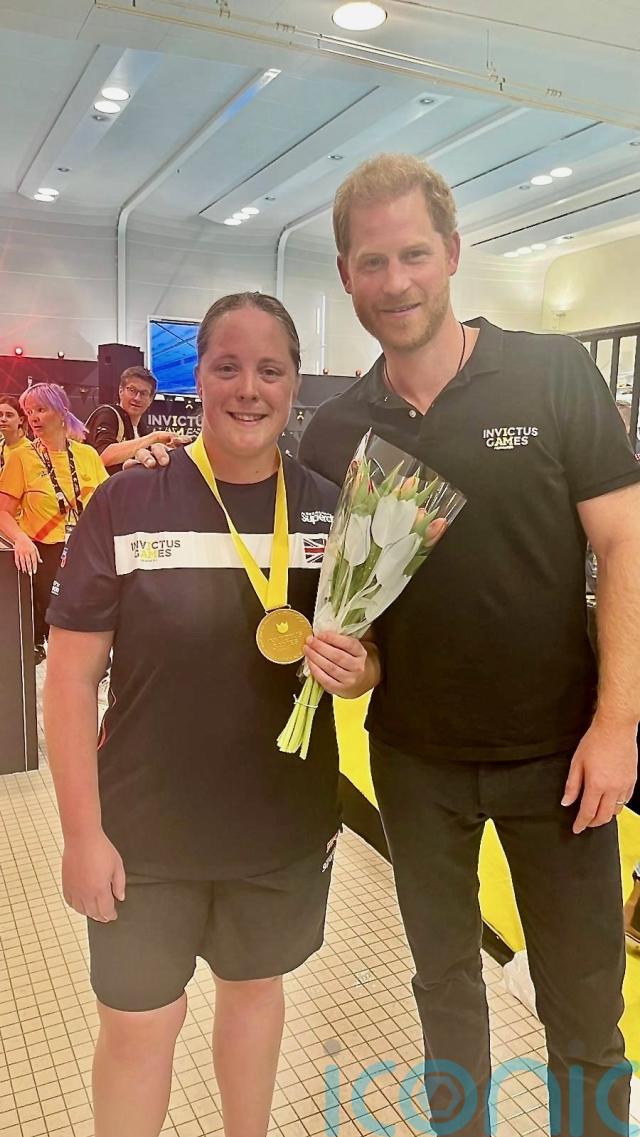
She now works as an administrative officer at the Defence Medical Rehabilitation Centre, Stanford Hall, and is an ambassador for Help for Heroes, supporting veterans and service members.
In 2023, she returned to the Invictus Games as part of the Team UK recovery staff, introducing adaptive sports to new team members.
She also competes in indoor rowing events, holding multiple adaptive British and world records in the PR3-SA classification.
Her next competition, the British Rowing Indoor Championships, takes place on December 7 and 8 at Birmingham’s NEC Arena, where she will compete in the four-minute and one-minute events, as well as commentating.
Reflecting on her journey, Rachel said: “I was very negative when I was injured, but now I always try to find the positive.
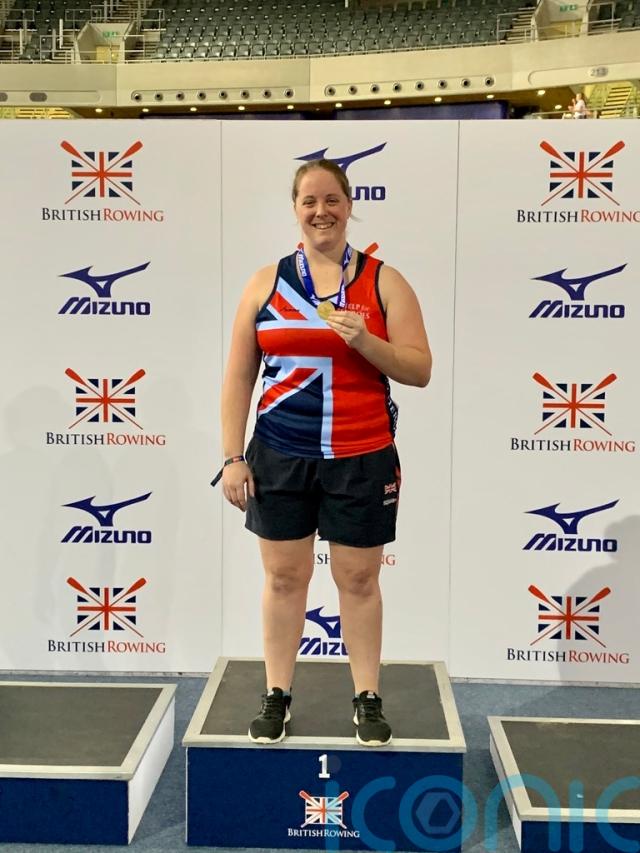
“Even on a rubbish day, there’s something to be proud of – even if it’s just making my bed.
“Since my injury, I’ve gained a new outlook on life.”
To others facing life-altering setbacks, she said: “Talk to someone, it makes such a difference.
“Don’t be afraid to try – whatever your goal or hobby is, just give it a go, at least then you’ll know you tried.”
The British Rowing Indoor Championships expects to have more than 2,000 rowers taking part alongside 15,000 FitFest athletes.
It is open to competitors of all ages and backgrounds, and the weekend will see a number of champions crowned across various distances and race categories, including the all-new Super Sprint Sunday event, which has been added to this year’s schedule.
For more information about this year’s British Rowing Indoor Championships, and to enter, visit: www.britishrowing.org/events/events-calendar/bric.
Subscribe or register today to discover more from DonegalLive.ie
Buy the e-paper of the Donegal Democrat, Donegal People's Press, Donegal Post and Inish Times here for instant access to Donegal's premier news titles.
Keep up with the latest news from Donegal with our daily newsletter featuring the most important stories of the day delivered to your inbox every evening at 5pm.